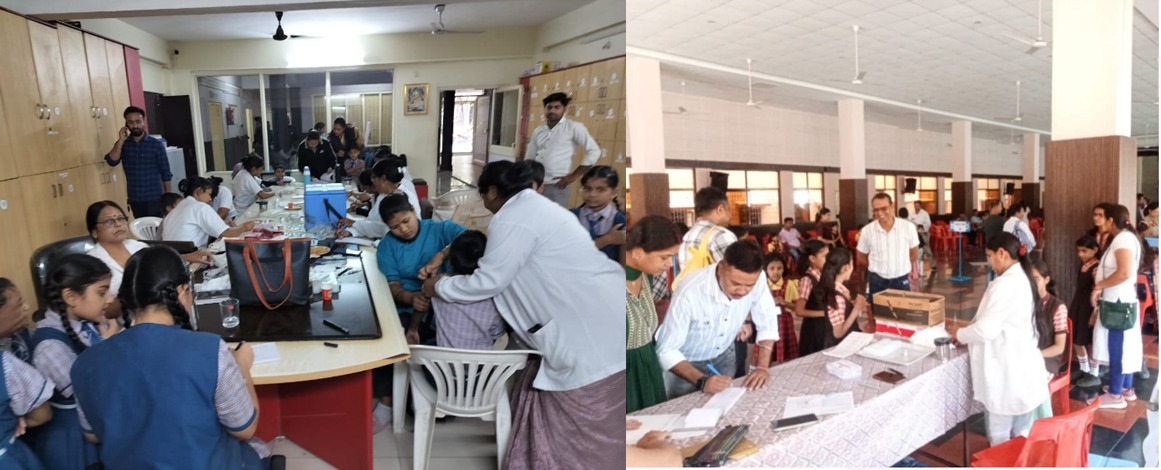CNN Central News & Network–ITDC India Epress/ITDC News Bhopal: Under the Japanese encephalitis vaccination campaign, vaccination is continuously underway in all schools of the district. Children aged 1 to 15 years are being vaccinated in the program. In Bhopal, over one lakh children have already been vaccinated with this vaccine. Under the campaign, children in private and government schools are enthusiastically getting vaccinated.
As part of the campaign, on Monday, 1419 children were vaccinated at St. Joseph Girls School located in Eidgah Hills on the same day. Since February 27, more than 3200 vaccination sessions have been conducted under this campaign. In urban areas, 73 thousand children and in rural areas, 35 thousand children have been vaccinated. This vaccine is administered to children to protect them from the deadly Japanese encephalitis disease. An estimated 9 lakh children in Bhopal will receive the vaccine. Apart from schools, this vaccine is being administered daily in 28 government and private health institutions in the district.
The District Education Officer has been directed by the Collector to disseminate information about this important campaign to parents. Pamphlets have also been given to book vendors, which are being distributed to parents while purchasing books.
Dr. Prabhakar Tiwari, Chief Medical and Health Officer, Bhopal, has appealed to parents to ensure that their children are vaccinated against Japanese encephalitis, a deadly and fatal disease. This vaccine is already being administered in several states and is completely safe and effective. The government is providing this vaccine free of cost. This vaccine has no side effects.
Japanese encephalitis is a life-threatening disease. After infection, the virus enters the central nervous system of the person, including the brain and spinal cord. In most cases of this disease, no symptoms are observed. In severe cases, symptoms such as headache and brain tissue inflammation (encephalitis) may occur, while other symptoms may include fever, headache, shivering, vomiting, high fever, and neck stiffness. Convulsions may also occur in affected individuals. Death can also occur if left untreated. Even among those who survive, residual sequelae may remain in 30 to 50% of cases.







